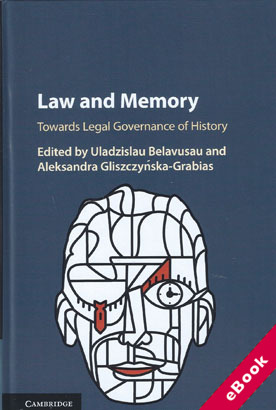
The device(s) you use to access the eBook content must be authorized with an Adobe ID before you download the product otherwise it will fail to register correctly.
For further information see https://www.wildy.com/ebook-formats
Once the order is confirmed an automated e-mail will be sent to you to allow you to download the eBook.
All eBooks are supplied firm sale and cannot be returned. If you believe there is a fault with your eBook then contact us on ebooks@wildy.com and we will help in resolving the issue. This does not affect your statutory rights.
Legal governance of memory has played a central role in establishing hegemony of monumental history, and has forged national identities and integration processes in Europe and beyond.
In this book, a range of contributors explore both the nature and role of legal engagement into historical memory in specific jurisdictions and cases. They also reflect on potential conflicts between legal governance, political pluralism, and fundamental rights, such as freedom of expression.
In recent years, there have been numerous monumental commemoration practices and memory-laws about correlated events all over the world, and this is a prime opportunity to undertake an important global comparative scrutiny of memory laws.
Against the background of mass re-writing of history in different parts of the world, this book revisits a fascinating subject of memory laws from the standpoint of comparative law and transitional justice.